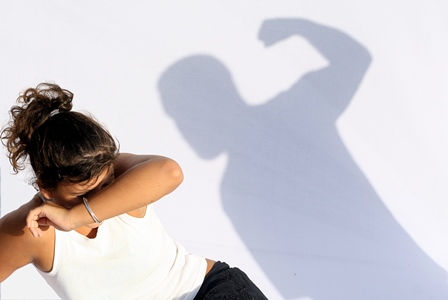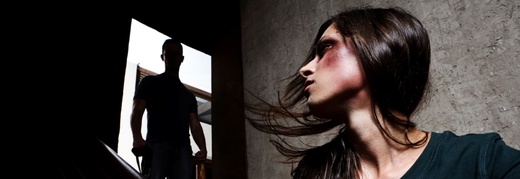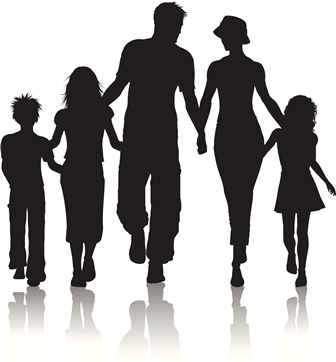The views expressed in our content reflect individual perspectives and do not represent the authoritative views of the Baha'i Faith.
 This year, the United Nations International Day of Families focuses on the theme of “Advancing Social Integration and Inter-generational Solidarity.” The United Nations General Assembly proclaimed May 15th as the International Day of Families in 1993, and the special observance reflects the importance the international community attaches to families.
This year, the United Nations International Day of Families focuses on the theme of “Advancing Social Integration and Inter-generational Solidarity.” The United Nations General Assembly proclaimed May 15th as the International Day of Families in 1993, and the special observance reflects the importance the international community attaches to families.
Do you come from a unified, loving family? Or is violence one of the realities of your family life? Baha’is strongly believe in family unity — but also know that it doesn’t exist in every family:
… the first and foremost bond is the family bond, but this bond is not effective, for how often it happens that in some families divergence and difference obtains. – Abdu’l-Baha, Baha’i Scriptures, p. 279.
Family-based violence, sometimes called domestic violence, tops the list of violent crimes in most countries of the world. Family violence against adults or children, experts say, is the number one drain on national economies, because it functions as the bedrock for almost all social problems — violent crime, homelessness, and the next generation of alcoholics and drug addicts.
The Baha’i teachings abhor and prohibit all family violence, and insist on protecting the human rights, the sanctity and the safety of every family member:
According to the teachings of Baha’u’llah the family, being a human unit, must be educated according to the rules of sanctity. All the virtues must be taught the family. The integrity of the family bond must be constantly considered, and the rights of the individual members must not be transgressed. The rights of the son, the father, the mother — none of them must be transgressed, none of them must be arbitrary. – Abdu’l-Baha, The Promulgation of Universal Peace, p. 168.
Baha’is view family violence as a basic human rights issue, and believe that every family member has the absolute right to a peaceful, non-violent existence.
However, some patriarchal societies have long supported and even institutionalized family violence, which often arises from social and legal systems that allow men to completely control women and children, granting males the unlimited license to dominate, oppress, and even “own” others. In these cultures family violence can become a culturally inbred part of every person’s upbringing, embedded in the consciousness of all family members as “acceptable” and “normal.”
 Many countries ignore or condone family violence in the name of religion or of culture, and insist that the absolute sovereignty of the males who control the family unit take rigid precedence over the safety or sanity of its individual members. At policy-making levels, some cultures often consider family violence a private matter and not even a punishable offense. In some countries, the law prohibits one family member from speaking out against, accusing or denouncing another, even for the most serious and violent acts. And where laws prohibiting family violence do exist, the authorities often exert little effort to implement them; in fact, the law often serves as the last resort for victims of abuse.
Many countries ignore or condone family violence in the name of religion or of culture, and insist that the absolute sovereignty of the males who control the family unit take rigid precedence over the safety or sanity of its individual members. At policy-making levels, some cultures often consider family violence a private matter and not even a punishable offense. In some countries, the law prohibits one family member from speaking out against, accusing or denouncing another, even for the most serious and violent acts. And where laws prohibiting family violence do exist, the authorities often exert little effort to implement them; in fact, the law often serves as the last resort for victims of abuse.
Both individual Baha’is and Baha’i institutions around the world have long worked for an effective human rights framework to create violence-free families. This major change in the culture of family violence will require enforcement of international conventions such as the Convention on the Elimination of All Forms of Discrimination against Women and the Convention on the Rights of the Child. It will also require state interventions that protect women and children from abuse and prevent such violations from occurring. Religious and political leaders, educators and law enforcement officials must be sensitized and mobilized to support new cultural values of mutual respect rather than domination of one gender over the other.
But this enormous global crisis requires more than new laws and increased enforcement – it requires the development of unity and peace in the world. We know that a violent society produces violent families. Just as family violence affects the wider society, a violent society reinforces and even creates a ripe climate for family violence:
Consider the harmful effect of discord and dissension in a family; then reflect upon the favors and blessings which descend upon that family when unity exists among its various members. What incalculable benefits and blessings would descend upon the great human family if unity and brotherhood were established! In this century when the beneficent results of unity and the ill effects of discord are so clearly apparent, the means for the attainment and accomplishment of human fellowship have appeared in the world. Baha’u’llah has proclaimed and provided the way by which hostility and dissension may be removed from the human world. – Abdu’l-Baha, The Promulgation of Universal Peace, p. 229.
This essay draws on the Baha’i International Community’s 1994 report titled “Creating Violence-Free Families,” which emerged from a symposium initiated by the Baha’i International Community’s Office for the Advancement of Women, in collaboration with the United Nations Children’s Fund (UNICEF) and the United Nations Development Fund for Women.




 Consider the harmful effect of discord and dissension in a family; then reflect upon the favors and blessings which descend upon that family when unity exists among its various members. What incalculable benefits and blessings would descend upon the great human family if unity and brotherhood were established! In this century when the beneficent results of unity and the ill effects of discord are so clearly apparent, the means for the attainment and accomplishment of human fellowship have appeared in the world.
Consider the harmful effect of discord and dissension in a family; then reflect upon the favors and blessings which descend upon that family when unity exists among its various members. What incalculable benefits and blessings would descend upon the great human family if unity and brotherhood were established! In this century when the beneficent results of unity and the ill effects of discord are so clearly apparent, the means for the attainment and accomplishment of human fellowship have appeared in the world. 












Comments
Sign in or create an account
Continue with Facebookor